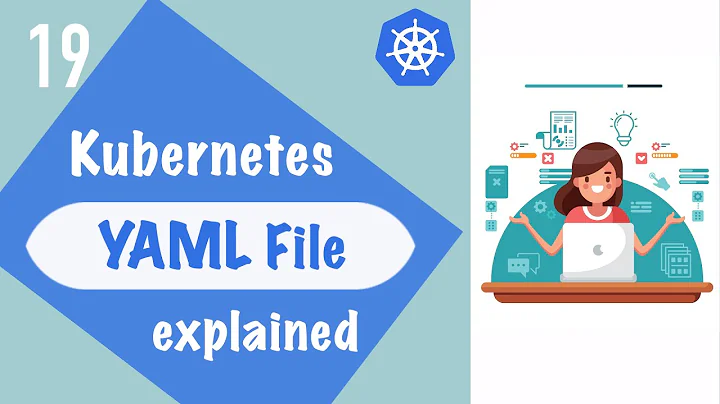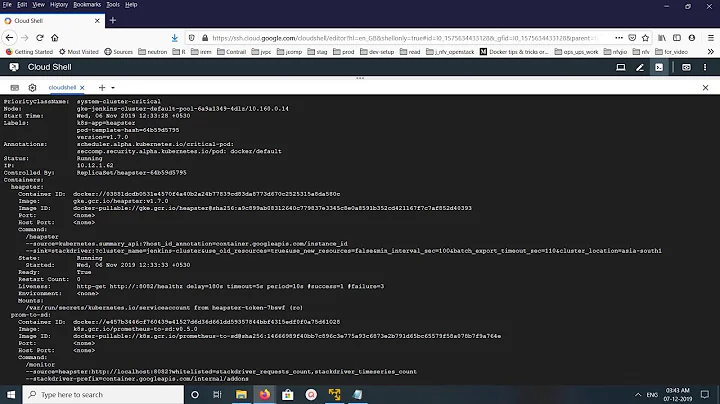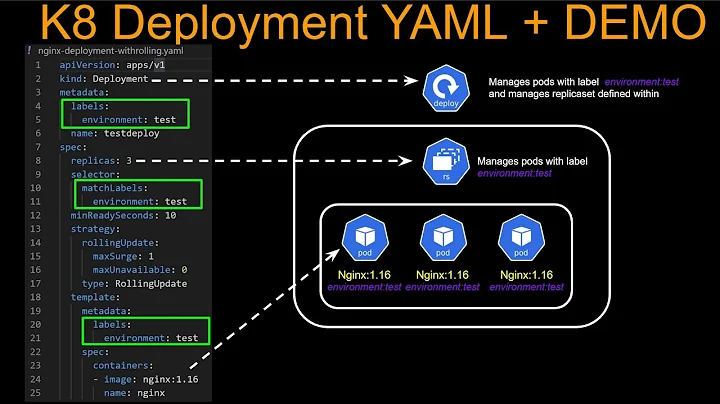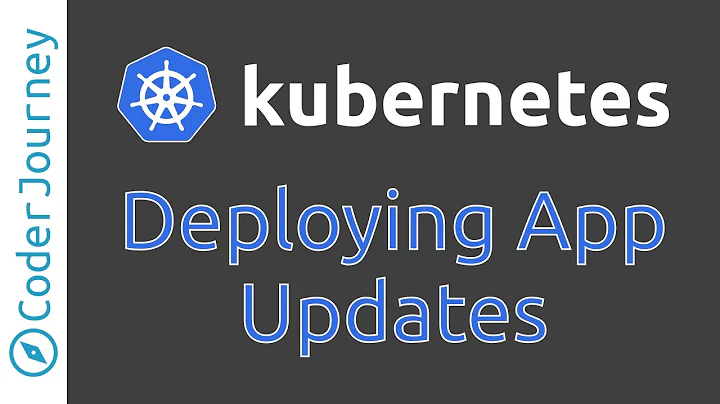Kubectl command to list pods of a deployment in Kubernetes
Solution 1
There's a label in the pod for the selector in the deployment. That's how a deployment manages its pods. For example for the label or selector app=http-svc you can do something like that this and avoid using grep and listing all the pods (this becomes useful as your number of pods becomes very large):
$ kubectl get pods -l=app=http-svc
or
$ kubectl get pods --selector=app=http-svc
Solution 2
K8s components are linked to each other by labels and selectors. There are just no built-in attributes of My-List-of-ReplicaSets or My-List-Of-Pods for a deployment. You can't get them from kubectl describe or kubectl get
As @Rico suggested above, you have to use label filters. But you can't simply use the labels that you specify in the deployment metafile because deployment will generate a random hash and use it as an additional label.
For example, I have a deployment and a standalone pod that share the same label app=http-svc. While the first two are managed by the deployment, the 3rd one is not and shouldn't be in the result.
ma.chi@~/k8s/deployments % kubectl get pods --show-labels
NAME READY STATUS RESTARTS AGE LABELS
http-9c89b5578-6cqbp 1/1 Running 0 7s app=http-svc,pod-template-hash=574561134
http-9c89b5578-vwqbx 1/1 Running 0 7s app=http-svc,pod-template-hash=574561134
nginx-standalone 1/1 Running 0 7s app=http-svc
ma.chi@~/k8s/deployments %
The source file is
apiVersion: apps/v1
kind: Deployment
metadata:
labels:
app: http-svc
name: http
spec:
replicas: 2
selector:
matchLabels:
app: http-svc
strategy: {}
template:
metadata:
labels:
app: http-svc
spec:
containers:
- image: nginx:1.9.1
name: nginx1
---
apiVersion: v1
kind: Pod
metadata:
labels:
app: http-svc
name: nginx-standalone
spec:
containers:
- image: nginx:1.9.1
name: nginx1-standalone
To exact spot the containers created and managed by your deployment, you can use the script below(which is ugly, but this is the best I can do)
DEPLOY_NAME=http
RS_NAME=`kubectl describe deployment $DEPLOY_NAME|grep "^NewReplicaSet"|awk '{print $2}'`; echo $RS_NAME
POD_HASH_LABEL=`kubectl get rs $RS_NAME -o jsonpath="{.metadata.labels.pod-template-hash}"` ; echo $POD_HASH_LABEL
POD_NAMES=`kubectl get pods -l pod-template-hash=$POD_HASH_LABEL --show-labels | tail -n +2 | awk '{print $1}'`; echo $POD_NAMES
Related videos on Youtube
Bajal
I'm a Java programmer. I like to use programming to make my day-to-day tasks easier for me and my team.
Updated on February 24, 2021Comments
-
Bajal about 3 years
Is there a way to use
kubectlto list only the pods belonging to a deployment? Currently, I do this to get pods:kubectl get pods| grep helloBut it seems an overkill to get ALL the pods when I am interested to know only the pods for a given deployment. I use the output of this command to see the status of all pods, and then possibly exec into one of them.
I also tried
kc get -o wide deployments hellodeployment, but it does not print the Pod names. -
kekaoyunfuwu about 3 yearsBut there are 2 labels for the pods: run=http-svc and pod-template-hash=736954933. If you specify just one label, there is a chance that you include some other pods that are not managed by the deployment.










